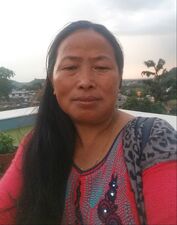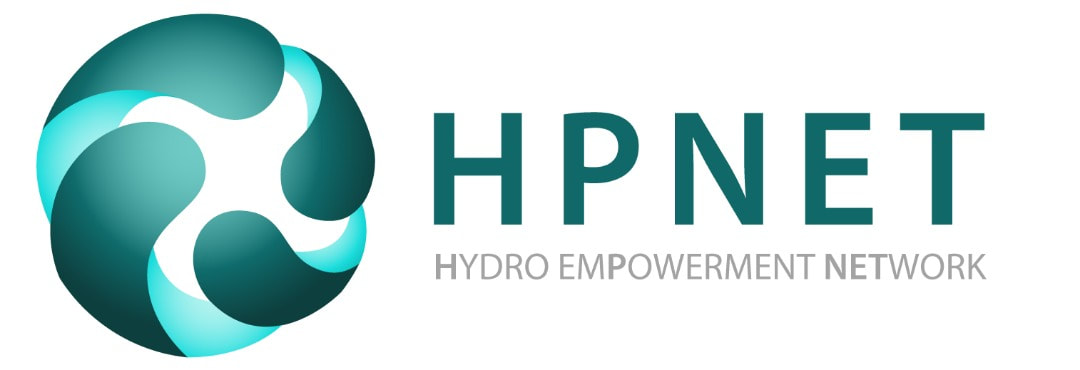| To commemorate International Women's Day this year, we launched the Hidden No More feature series to spotlight women change-makers who have transformed gender barriers, and made significant contributions to energy access for marginalized communities. We are excited to feature our second change-maker -- Ms. SriJana Thapa, a grassroots coordinator for micro hydro development in Nepal. Ranisha Basnet of energypedia UG took the opportunity to speak with Srijana to understand her experiences in the gender-energy nexus. Read below! |
My name is Srijana Thapa and I am the Team Leader at the Dhaulagiri Community Resources Development Centre (DCRDC). DCRDC is a social organization based in Baglung district in Nepal. I have a bachelor's degree in Social Science and Humanities from the Tribhuvan University, Nepal.
How did you start your career?
Since early 2000, I have been involved in various community development projects at DCRDC. In 2002, I worked as a coordinator for the Women’s Empowerment Program and then in 2006 became the Team Leader of the Renewable Energy Program, which includes all forms of decentralized renewable energy (such as solar and biogas), but we focus primarily on micro hydropower (MH).
Tell us about your current work in the MHP field?
As a Team Leader, I, along with my team, am involved in social mobilization, MH demand collection, user community formation and in raising awareness about the subsidy program for MH.
How has the MH scenario changed since you started in 2006?
In 2006, there was no infrastructure such as roads in the target villages. The villagers also did not have the funds to pay for the initial installation of the MH systems and would have to take credits. They would then need 3-4 years to pay off the credit. The mechanical and electrical equipment were transported by either men or animals such as mules to the MHP sites. Thus, it would take longer and was more expensive to construct micro hydro projects (MHPs). Similarly, there was very little demand for electricity from the MHPs. For example: for a 25 kW MH system, only 10 kW would be used, as there were no or fewer productive end use activities.
In recent years, these villages are being developed and have infrastructure such as roads. Now, there are also more donors who provide funds for the initial construction of the MHPs such as the Rural Municipality/Municipalities/Irrigation Office. Access to roads have enabled new productive end uses activities and ensured that the electricity load is not wasted. Nevertheless, the national grid is expanding to the rural villages and the MH systems will have to be connected to the national grid to ensure the long-term sustainability of the MHPs. We should also focus on promoting more productive activities instead of building new MH plants.
Tell us about the women empowerment program within your organization?
Earlier in 2006, gender empowerment and social inclusion (GESI) was not the focal point of our program, but since 2013 we have been actively promoting women empowerment programs. As part of the GESI program, women are trained as MH system operators and receive trainings for different skills such as accounting, leadership, and business. In our MHP user communities, the treasury is also always handled by the women. The government also provides subsidies for women-led businesses, which have helped to promote women’s participation. Currently, there are different women-led businesses such as a mineral water factory, beauty parlor, bakery, tailoring etc.
In the earlier days, it was really hard to involve women as they were very shy and hesitant. During the community mobilization, we always involved the key persons of the village to convince them about the need for women’s participation in the MHPs. This helped us to increase women’s participation in our MHPs.
Tell us about your challenges as a woman hydro practitioner?
As a Team Leader, I did not face many difficulties. The villagers always welcomed us during the field visit. I also had the opportunity to work with a great team that supported me a lot. The only challenge was traveling long distances to reach the MH powerhouse, which I personally found physically exhausting.
What kind of change did you observe in the MH community in the last 10 years?
In the last 10 years, a lot has changed. For example: our MHP sites now have access to roads. Many micro, small and medium enterprises (MSMEs) are now using the electricity from the MHPs. This has resulted in an increase in income, people are self-employed, and this has drastically changed the rural livelihood. The people also have access to communication devices such as television and mobile phones. The clean electricity from the MHPs have replaced the polluting kerosene lamps. This has resulted in improved health condition for women, saved time and the children are also able to study at night.
Previously, the women had to mill the grains manually but now with the arrival of electricity, it has reduced the burden on the women. Since most of the men migrate overseas or to cities for work, women are now mostly involved in productive end use activities. These women entrepreneurs are also inspiring other women to start their own businesses.
Would you like to share any final thoughts for our readers?
When we are working with the community, no matter how qualified we are, we always have to follow the bottom-up approach. We need to first know the community and their needs and not impose what we believe is the right strategy. Every day, I am learning something new from the community and I believe I still have a long way to go.

